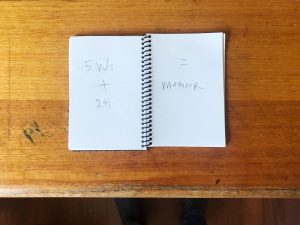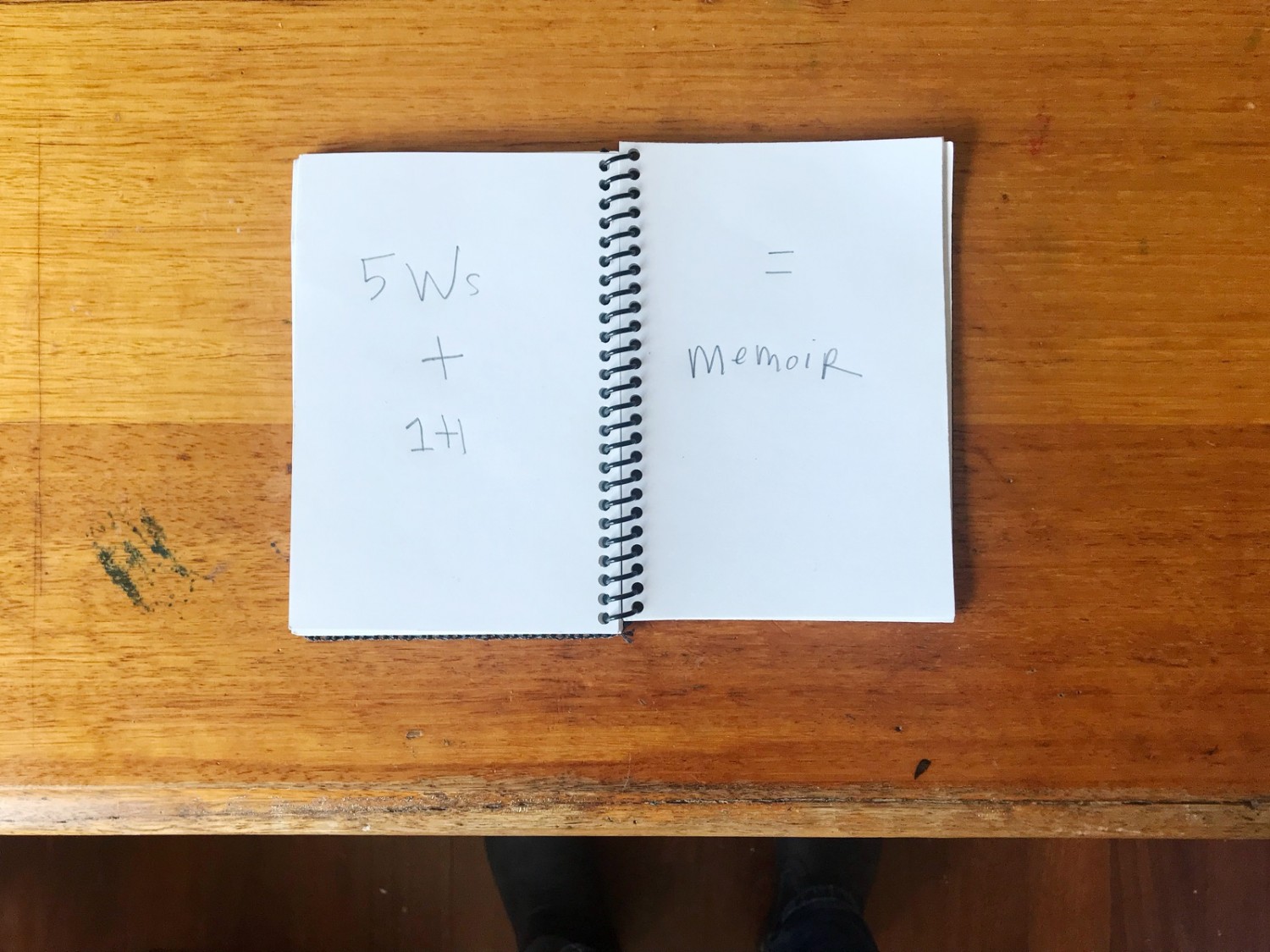PSST! I MIGHT HAVE CRACKED THE CODE FOR WRITING A MEMOIR. WHAT DO YOU THINK?
It’s 5Ws+1H. And I’ll even share the interpretation of the code ;-).
My theory is that if you ponder these questions with curiosity and patience, you’ll come up with a strong framework for writing your story. You don’t need to answer these questions in order and I doubt you’ll answer them all in one sitting. (If you do the latter, you can be confident that you already understand your story well.)
The first W stands for ‘Who is this story about?’
According to who’s in your story, simply write a name or names and a short description about why they’re included. Try to keep the description to under 50 words.
Then comes W number 2: What is this story about?
Briefly describe the point you’re trying to make in this tome. You might also call this the theme/s or the ideas that you want the reader to take with them after reading your story.
Why does it matter?
Don’t ask this question too early. The act of writing the story usually helps you discover what it’s actually about and why you’re writing it. You may not know the answer to this question until you’ve written a draft or two… or three.
Next ask yourself: W here is the story set?
What sort of setting is going to suit your story? Consider features that will enhance your themes. Consider time, place and characters. For example, you may not want the whole family involved! Or you might set the story at the beach shack, because that’s where you can tap into landscape. Or you might cram the story into a week, instead of your lifetime…
The single ‘H’ in the code comes next: How am I going to write this?
Consider what you know already about the story in terms of style, content, theme, craft elements, etc. What do you still need to explore, learn and do to pull this project off? Investigating the known knowns and the known gaps is the first step to working out how you’re going to write it.
There are many more steps. If you need guidance, we can help via one-on-one coaching or workshops. Get in contact to find out how we can help.
When am I going to write?
Of course, writing is an essential part of the formula. If you don’t allow time to write, you won’t write it!
You can come up with any strategy that suits you. Consider:
- Twice a week from 7pm to 9pm
- Daily from 6.30am to 7am
- Five minutes after every meal (think outside the square!)
- Into a Dictaphone as you walk or drive to work
- Every Sunday morning.
It doesn’t matter how or when or what – just start, review, adjust and start again. If you need a hand, contact ASTT for help. A quick call or a prompt or two can set you back on track.
Ann Bolch, A Story To Tell, https://www.astorytotell.com.au/




Follow Us